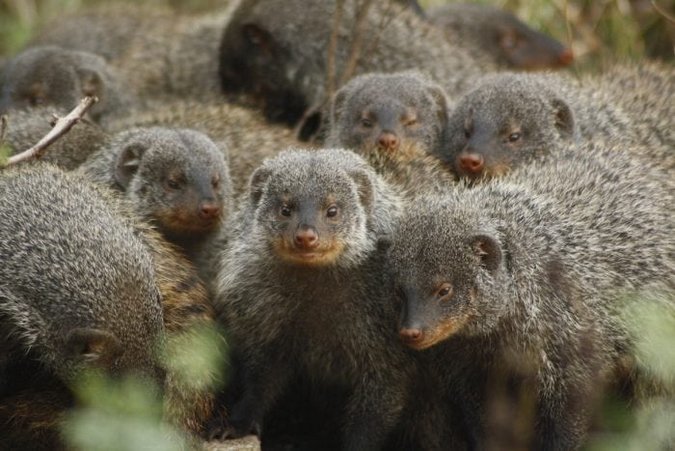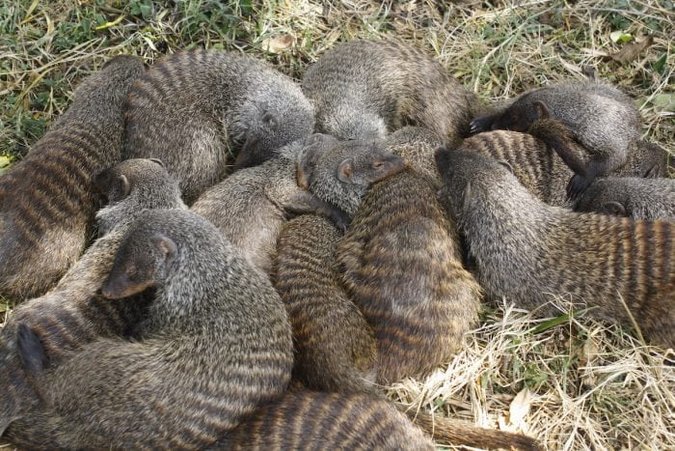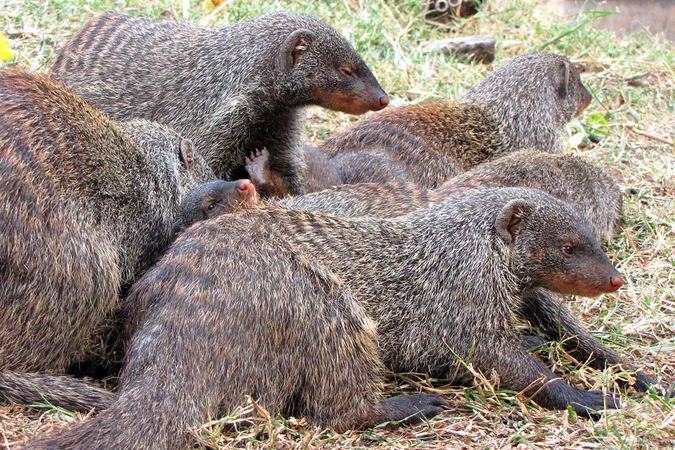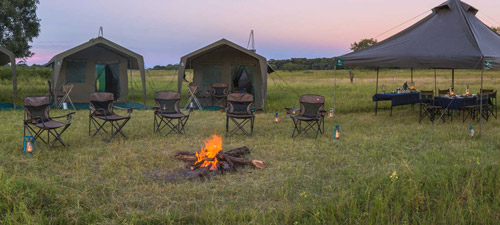
Sourced from University of Exeter
A new study suggests that banded mongoose pups that receive the most nurturing and attentive escorting in the first months of their life breed more successfully than others. Banded mongooses live in social groups, and for each pup, there is a single adult known as an ‘escort’ – that is not their mother or father – who cares for them one-on-one. These escorts carry, groom and protect the pups, who in turn will inherit lifelong habits and behavioural traits from these role models. This access to extra care and resources during the early part of life is known as the ‘silver spoon effect’.
Now a new study published in Philosophical Transactions B shows that the care mongoose pups receive in the first few months of life play a crucial role in their future successes and that this ‘silver spoon effect’ has a lasting, long-term effect on both their survival and later reproductive success, long after the short-term period of care has ended.
The study, based on data taken between the years 2000 and 2016 from a habituated population of wild banded mongooses living in Queen Elizabeth National Park in western Uganda, found that pups that were closely escorted were heavier as they achieved sexual maturity – which is associated with higher reproductive success. Crucially, for female pups, the amount of care received had the most significant impact on how successfully they reproduced throughout their adult life, over and above effects of larger size.

The study provides a fascinating insight into how helping behaviour shapes the life history of social mammals including humans, that evolved in cooperative family groups in which offspring were cared for by helpers (grandparents, older siblings) as well as their parents.
“Our study shows that the impacts of early life care extend well past the initial caring period. As humans are also very sensitive to early life conditions, these ‘durable benefits’ of cooperation may have played an essential role in shaping the development, health, and life history of our own species.” said one of the authors, Professor Michael Cant from the University of Exeter.

The study looked at a 17-year dataset and found that despite being born on the same day, pups within the same litter are not always equal: some pups spend all day with their escort while others are left to fend for themselves from an early age.
“We know that care and resources received early on in life have profound effects on health and wellbeing in humans. Our study shows that also in mongooses, these early differences accumulate, with bigger pups receiving more care and doing better overall”, said lead author of the study Dr Emma Vitikainen, from the University of Helsinki.
Full report: Emma I. K. Vitikainen, Faye J. Thompson, Harry H. Marshall and Michael A. Cant (2019). Live long and prosper: durable benefits of early-life care in banded mongooses. Philosophical Transactions B. https://doi.org/10.1098/rstb.2018.0114
To comment on this story: Login (or sign up) to our app here - it's a troll-free safe place 🙂.![]()
HOW TO GET THE MOST OUT OF AFRICA GEOGRAPHIC:
- Travel with us. Travel in Africa is about knowing when and where to go, and with whom. A few weeks too early / late and a few kilometres off course and you could miss the greatest show on Earth. And wouldn’t that be a pity? Browse our ready-made packages or answer a few questions to start planning your dream safari.
- Subscribe to our FREE newsletter / download our FREE app to enjoy the following benefits.
- Plan your safaris in remote parks protected by African Parks via our sister company https://ukuri.travel/ - safari camps for responsible travellers






